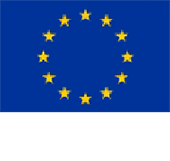The Università degli Studi di Verona (UNIVR) is a young and dynamic public institution, established in Verona in 1982. It has more than 22000 students and around 50 courses. According to the prestigious business Italian journal “Il Sole 24 Ore”, in 2015 the University of Verona was ranked 1st in Italy for the quality of the research and teaching.
The University of Verona has participated in more than 270 FP7 and H2020 projects. The Department of Biotechnology has a successful record of fulfilling and managing EU research contracts. Some 50 people make up the permanent research staff of the department, more than 50 PhD students and 20 technicians, and a large postgraduate population of research fellows, assistants and contract researchers representing 80% of researchers employed in the Department. The Group of Environmental and Bioprocess Engineering is a leader in the sectors of wastewater treatment and management and biowaste and sludge management, with an average income for research projects (both public and private) of 500 k€ per year in the last five years. The group has a consolidated experience in the management and implementation of EU projects and a stable network with water and waste public and private companies and water authorities. In this field the Group holds relevant coordination roles such as: chair of specialist groups of the International Water Association (IWA), in 2014 the Group chaired the IWA specialized conference ecoSTP2014 where more than 300 contributions from 41 Countries were submitted (www.ecostp.org), management committee of Water_2020 network (www.water2020.eu); executive committee of international fairs on environmental technologies (www.ecomondo.com).




